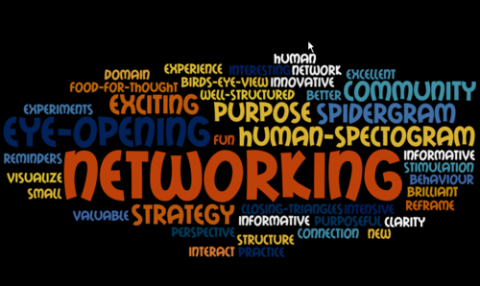Encouraging Breakthrough Interactions
August 29, 2012 Leave a comment
During a recent planning session for an upcoming conference on community food security, we had a rich discussion about ensuring that the gathering embody some of the future we are trying to realize. This included breaking down silos and encouraging boundary crossing of different kinds. To punctuate the value of this, Rachel Greenberger of Food Sol invoked the words of Cheryl Kiser – “It’s not about breakthrough ideas, it’s about breakthrough interactions.”
Something that the design team has grabbed on to for the proceedings is an idea that was passed along to me by my colleague Beth Tener, of New Directions Collaborative, which is to hold a “Closing Triangles Raffle.” Closing triangles is a practice of good network weavers, who introduce two (or more) people they know to one another, so that the network is more robustly connected. How the raffle works is that everyone is encouraged to introduce people to one another who do not already know one another, with a compelling reason for why they should meet one another, then have the two people write their names on one side of a card. The weaver then writes her name in bold and puts the card in the raffle bowl. The more introductions one makes, the greater the chance of winning the raffle prize (dinner at a locally-sourced restaurant, a CSA share, etc.). While the prize is meant to provide some incentive, the real returns come longer term in greater trust, resource sharing, innovation, and connectivity!
No Comments
Love this idea! I am going to try it. Thanks for sharing it, Cynthia!
Great idea and really like the quote about breakthrough interactions, rather than ideas. I wonder if the idea can be taken further yet beyond introduction interactions, to actual breakthroughs during conversations. Like a disruption of the interaction, to open for a moment an important possibility to think otherwise, and develop new ideas? Perhaps an additional incentive could be developed for those interactions.
Thanks, Carey. And love your idea about extending. I see possibilities, and have actually practiced, intervening in conversations to have people reflect on tendencies and assumptions. “Who are you with?”. “Witj whom have you NOT been?”. “How are you drawing boundaries around your interactions?”. And also asking strategic questions such as “What is the conversation you need to have, and with whom? To move your work forward?”